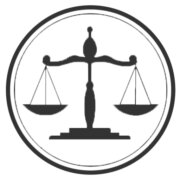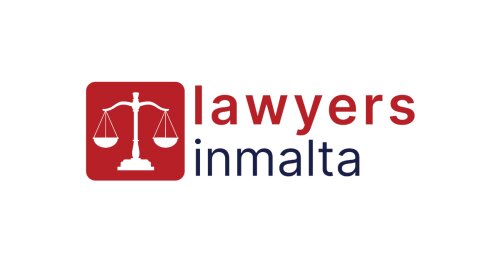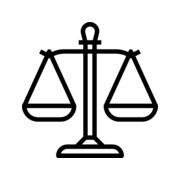Best Antitrust Litigation Lawyers in Malta
Share your needs with us, get contacted by law firms.
Free. Takes 2 min.
Or refine your search by selecting a city:
List of the best lawyers in Malta
About Antitrust Litigation Law in Malta
Antitrust litigation in Malta centers on disputes involving competition law, which is designed to maintain fair competition within the Maltese market and the broader European Union. The law prohibits agreements and business practices that restrict competition, such as price fixing, abuse of dominant market positions, and mergers that could lead to excessive market concentration. Antitrust cases may arise when businesses or individuals believe these rules have been breached, whether they are bringing claims as victims or defending themselves against allegations.
Why You May Need a Lawyer
You might require legal help in antitrust litigation for various reasons. Common situations include:
- Being subject to an investigation by Maltese or EU competition authorities
- Receiving a complaint that your business is engaging in anti-competitive practices
- Discovering that a competitor is violating competition laws
- Dealing with merger control issues or responding to requests from authorities for information
- Navigating complex administrative procedures or responding to dawn raids
- Defending your interests in court or before regulatory bodies
- Seeking compensation for damages suffered due to unlawful anti-competitive behavior
Experienced legal professionals can help interpret legislation, represent you in disputes, and advise on compliance with both Maltese and EU competition rules.
Local Laws Overview
Antitrust law in Malta is primarily governed by the Competition Act (Chapter 379 of the Laws of Malta) and enforced by the Office for Competition, part of the Malta Competition and Consumer Affairs Authority (MCCAA). Key aspects include:
- Prohibition of agreements or concerted practices that restrict, prevent, or distort competition in Malta. This covers price fixing, market sharing, and bid rigging.
- Rules against abuse of dominant market positions, such as imposing unfair prices or conditions or limiting production to the detriment of consumers.
- Merger control provisions which require notification and clearance for certain mergers and acquisitions.
- Alignment with EU competition law, especially concerning the Treaty on the Functioning of the European Union (Articles 101 and 102).
- Provisions for investigations, sanctions, and appeals before the Competition and Consumer Appeals Tribunal and higher courts.
Non-compliance can result in significant fines, orders to cease unlawful behavior, and liability for damages.
Frequently Asked Questions
What qualifies as anti-competitive behavior in Malta?
Anti-competitive behavior includes agreements between businesses that fix prices, restrict output, share markets, or abuse a dominant position-such as imposing unfair conditions or refusing to supply.
Which authority enforces antitrust law in Malta?
The principal enforcement body is the Office for Competition, within the Malta Competition and Consumer Affairs Authority. They investigate, prosecute breaches, and may impose fines.
Does Maltese antitrust law apply to both local and foreign companies?
Yes. Maltese competition law applies to any activity that has an effect on the Maltese market, irrespective of whether the business is local or foreign.
What should I do if I am subject to an antitrust investigation?
You should consult a specialized antitrust lawyer immediately, cooperate with authorities, and prepare to provide requested information or documents. Legal advice is essential to protect your rights.
What penalties can result from breaching antitrust laws in Malta?
Penalties include significant administrative fines, cease and desist orders, nullification of unlawful agreements, and in some situations, liability for damages to affected parties.
Can I claim damages if I suffer from anti-competitive practices?
Yes. Victims can bring a claim before the Maltese civil courts to seek compensation for losses suffered due to unlawful anti-competitive behavior.
How is merger control handled in Malta?
Certain mergers or acquisitions that may significantly impact market competition require prior notification to and clearance from the Office for Competition. Failure to notify can result in fines.
Are there exemptions to antitrust rules?
Yes, some agreements may be exempt if they contribute to improving production or distribution, but they must not eliminate competition or harm consumers. Exemptions are narrowly interpreted.
How long do investigations usually take?
The duration depends on the complexity of the case. Some investigations may resolve in months, while others, especially those involving dawn raids or appeals, can take years.
Do EU competition laws apply in Malta?
Yes. As an EU member state, Malta applies both its national competition rules and relevant EU regulations and directives in parallel, particularly for matters with cross-border implications.
Additional Resources
For more information or support regarding antitrust litigation in Malta, consider the following organizations:
- Malta Competition and Consumer Affairs Authority (MCCAA) - Office for Competition
- Chamber of Advocates Malta - for referrals to competition law specialists
- European Commission - Directorate-General for Competition
- Official website of the Law Courts of Malta for access to legislation and court procedures
- Maltese Ministry for the Economy - resources on business compliance and fair trading
Next Steps
If you suspect involvement in or are affected by anti-competitive practices in Malta, it is advisable to:
- Consult with a Maltese lawyer specializing in competition and antitrust law as soon as possible
- Gather all relevant documentation and evidence related to your case
- Contact the Office for Competition for preliminary guidance where appropriate
- Stay informed about your rights and obligations under Maltese and EU competition law
- Prepare for potential legal proceedings, including administrative actions or court litigation
Taking swift and informed action can protect your interests and help resolve antitrust disputes efficiently. Legal professionals can provide invaluable support throughout the process, ensuring that your case is handled with the expertise it requires.
Lawzana helps you find the best lawyers and law firms in Malta through a curated and pre-screened list of qualified legal professionals. Our platform offers rankings and detailed profiles of attorneys and law firms, allowing you to compare based on practice areas, including Antitrust Litigation, experience, and client feedback.
Each profile includes a description of the firm's areas of practice, client reviews, team members and partners, year of establishment, spoken languages, office locations, contact information, social media presence, and any published articles or resources. Most firms on our platform speak English and are experienced in both local and international legal matters.
Get a quote from top-rated law firms in Malta — quickly, securely, and without unnecessary hassle.
Disclaimer:
The information provided on this page is for general informational purposes only and does not constitute legal advice. While we strive to ensure the accuracy and relevance of the content, legal information may change over time, and interpretations of the law can vary. You should always consult with a qualified legal professional for advice specific to your situation.
We disclaim all liability for actions taken or not taken based on the content of this page. If you believe any information is incorrect or outdated, please contact us, and we will review and update it where appropriate.
Browse antitrust litigation law firms by city in Malta
Refine your search by selecting a city.
















